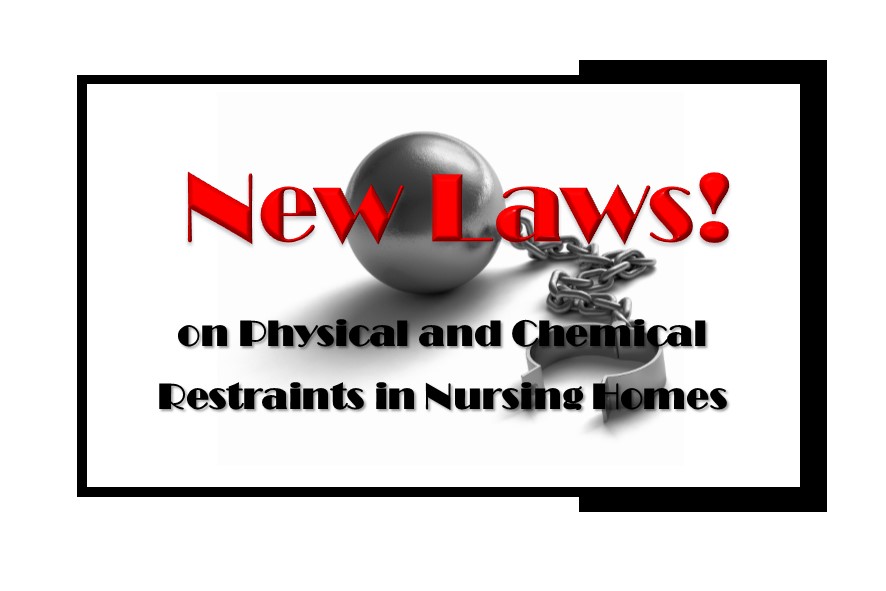Nursing home residents are currently discriminated against when it comes to laws regulating use of medications to control behaviour. Put simply, there are no laws that do so. The Royal Commission into Aged Care must ensure this changes.
Chemical restraints in aged care
A report by the ABC on 18 September on the over-prescribing of dangerous antipsychotic medication is just the latest report on this practice in the aged care industry. This practice has been occurring for many years. As the ABC article reported, antipsychotic medications have caused serious side-effects to elderly people, including death.
There has been a campaign to reduce the rate of antipsychotic prescriptions for many years. The Australian Aging Agenda reported in March 2018 reported on a study which found the rates of antipsychotic prescriptions had reduced, but the rate of benzodiazepine medications (used for sleeping and decreasing anxiety) had increased. The article reported that: “It appears prescribers are responding to evidence about the harmful effects of antipsychotics and are looking for alternatives but unfortunately they are replacing them with other potentially harmful drugs.”
It is clear that use of medications to modify behaviours associated with dementia and delirium is occurring. This puts residents at a significant risk of harm. Use of medications to modify behaviour in this fashion is a form of chemical restraint. This was recognised by the Australian Law Reform Commission’s 2017 report on Elder Abuse. The Commission noted that use of chemical restraints was unregulated by law and that this needed to change. Twelve months on, elderly nursing home residents are still left vulnerable.
The right to choose or refuse medical treatment
The law recognises that every adult has a fundamental right to determine what happens to their own body. This applies to health care. A doctor or nurse cannot administer treatment, such as a medication, unless you consent to that treatment. If no consent is provided then the doctor or nurse has committed a criminal assault or a battery at civil law.
If a person is affected by a health condition which impairs their ability to make decisions about their health, they may have lost decision-making capacity. In these situations, a doctor or nurse can only give treatment in certain circumstances covered by various ACT laws (of laws in other States). For example, a person can make a health care directive indicating they consent to future treatment. An Enduring Power of Attorney can enable someone to consent to treatment on that person’s behalf. Treatment can also be provided in emergencies to save a person’s life.
When a medication is administered to someone with a mental illness who does not have decision-making capacity, it can only be given in the ACT in accordance with the Mental Health Act. It is illegal to administer a medication to treat a mental illness unless certain criteria under the Act are met. Yet in nursing homes, when it comes to administering medications to modify behaviours of dementias or delirium there is no equivalent law.
The importance of laws to reduce risk of harm
The law has a pivotal role to play in reducing the risk of harm to nursing home residents. Laws are needed to ensure medications are only provided to a person to control their behaviour in limited circumstances.
It is highly likely that medications to control behaviour have been given to nursing home residents unlawfully. In the ACT, unless the person made a health care directive specifying they would consent to taking these medications, or a person empowered under an Enduring Power of Attorney consented to the treatment, then it is unlikely there is legal authority for the medication to be given.
Nursing home residents have legal remedies available to them if medications have been given without their consent. Police can be called. A civil claim can be made seeking to restrain the continued administration of the medications and for damages. These appear to be used infrequently, if at all.
Laws specifying the circumstances when a medication can be administered as a form of chemical restraint will reduce the serious risks of harm to nursing home residents. It is clear that leaving it up to individual nursing homes and doctors is not effectively ensuring the appropriate use of potentially harmful medications. On a more fundamental level, the rights of nursing home residents are potentially being ignored.
The ACT’s Mental Health Act ensures that a specialist doctor has consulted before a medication can be given. There is appropriate oversight to ensure that medications are given only as permitted by the Act. Similar laws should be made which apply specifically to nursing homes.
New laws are needed now
Uniform nation-wide nursing home laws should be made to ensure that chemical restraints are only given after a resident has had specialist medical assessment. Any law should ensure that chemical restraints are only used as a last resort. It should also permit only certain specialist doctors to be able to prescribe these types of medications.
Regulation of the use of chemical restraints will add another layer of red-tape to the aged care sector. Issues such as the availability of specialists to assess the needs of nursing home residents in rural areas, as well as staffing ratios, will likely be important considerations. But when we consider the risks posed by leaving this important issue totally unregulated, the rights of nursing home residents must prevail. There is no justification for the total absence of law regulating this serious issue, particularly when we have robust laws in mental health and disability sectors across the country.
Let’s hope the Royal Commission in Aged Care leads to uniform laws aimed at combating this serious issue. Better still, seeing as we already know about this serious issue, let’s fix the problem now. We already have laws designed at doing this in other areas, so why make nursing home residents wait?
About Elringtons
Elringtons is a South-Eastern NSW law firm based in Canberra and Queanbeyan. We cater for all areas of Southern NSW. We have particular expertise in health and medical law and elder law, as well as a range of other services.
Further reading

elringtons lawyers regularly provide legal advice in relation to a range of health law matters. Please contact our Health Law Team for more information or to make an appointment call (02) 6206 1300












